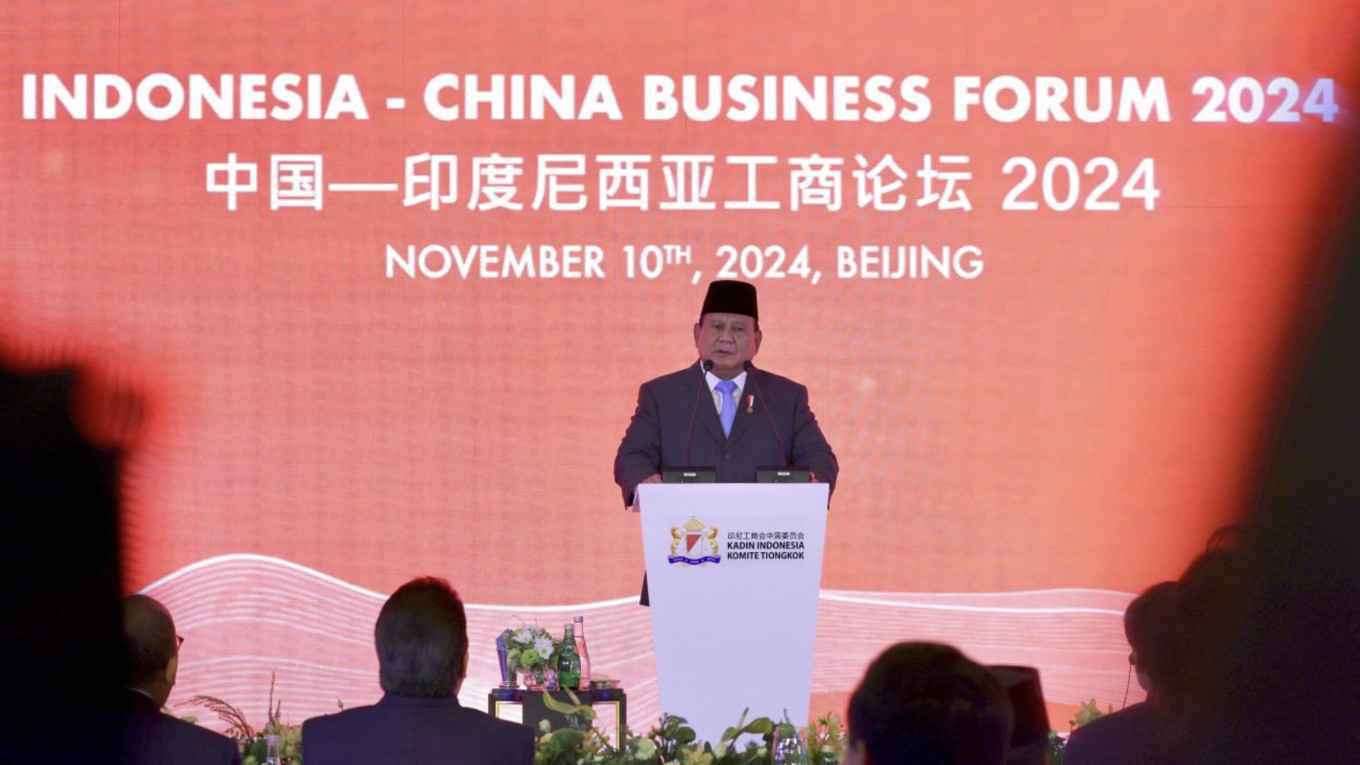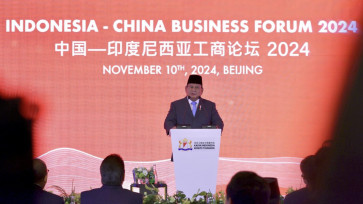Popular Reads
Top Results
Can't find what you're looking for?
View all search resultsPopular Reads
Top Results
Can't find what you're looking for?
View all search resultsIndonesia has not surrendered sovereign rights in the North Natuna Sea
What Indonesia and China have agreed on is a common understanding on joint development in areas of overlapping claims, which could mean a lot of things.
Change text size
Gift Premium Articles
to Anyone
E
arlier this month a joint statement from Indonesia and China sparked controversy over maritime cooperation. While media reports suggested Indonesia agreed to joint development in disputed areas, the statement only reflects a “common understanding” without binding commitment.
The vague language allows both countries to claim diplomatic victories, allowing Indonesia to gain economic opportunities with China while maintaining its sovereign rights.
The joint statement released on Nov. 9 following the meeting between newly inaugurated President Prabowo Subianto and Chinese President Xi Jinping has been making many waves in the region. Based on that statement, the media quickly reported that Indonesia and China had signed several memorandums of understanding, including for the joint development of maritime resources in the overlapping areas between Indonesia and China.
Within a matter of days, there was an outcry about how Indonesia had fallen into China's trap or how China had won a diplomatic coup against Indonesia. However, as is often the case with such diplomatic statements, they contain some subtle nuances, which indicate a more complex and strategic positioning by Indonesia and China.
First of all, joint statements are not legally binding documents. They are a standard tool commonly used to memorialize the outcome of high-level international meetings in a form intended for public consumption. This is why the joint statement between Indonesia and China reads more like a press release than an international agreement. These statements sometimes indicate a future course of action but rarely create binding legal obligations.
Second, due to their non-binding nature, states tend to use joint statements to make general declarations of intent, providing signals to the general public about their intent to cooperate and informing the domestic audiences of both countries about the next step to be taken. Thus, phrases and words should not be extracted from this kind of statement in isolation without providing the whole sentence. Context matters.
In this case, the focus turned immediately to the terms “joint development” and “overlapping areas”, leading to the conclusion that Indonesia had agreed with China to jointly develop the maritime areas where they have overlapping claims.



















